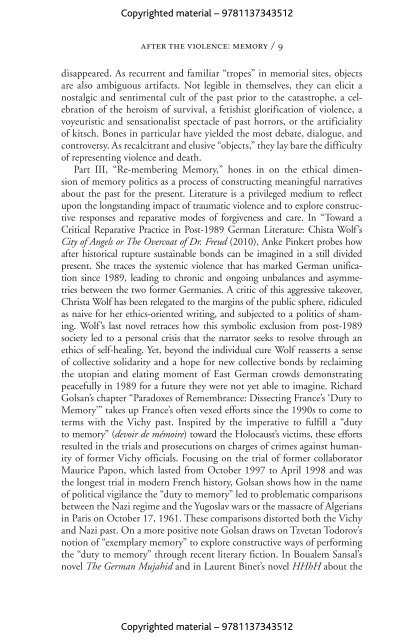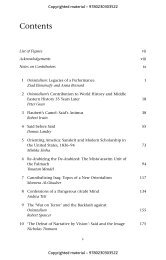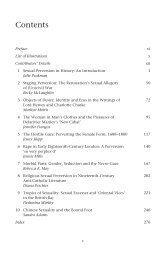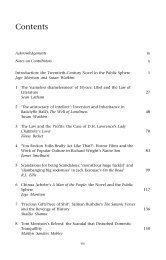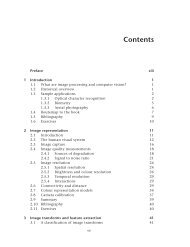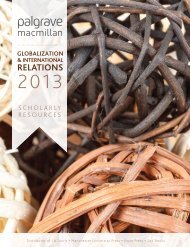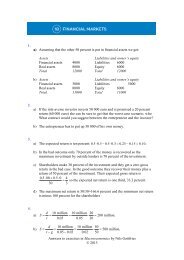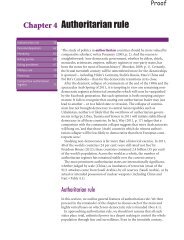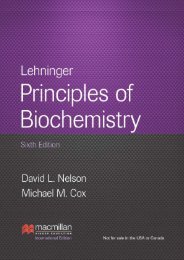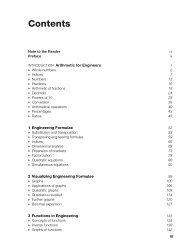Download sample chapter - Palgrave
Download sample chapter - Palgrave
Download sample chapter - Palgrave
Create successful ePaper yourself
Turn your PDF publications into a flip-book with our unique Google optimized e-Paper software.
Copyrighted material – 9781137343512<br />
after the violence: memory / 9<br />
disappeared. As recurrent and familiar “tropes” in memorial sites, objects<br />
are also ambiguous artifacts. Not legible in themselves, they can elicit a<br />
nostalgic and sentimental cult of the past prior to the catastrophe, a celebration<br />
of the heroism of survival, a fetishist glorification of violence, a<br />
voyeuristic and sensationalist spectacle of past horrors, or the artificiality<br />
of kitsch. Bones in particular have yielded the most debate, dialogue, and<br />
controversy. As recalcitrant and elusive “objects,” they lay bare the difficulty<br />
of representing violence and death.<br />
Part III, “Re-membering Memory,” hones in on the ethical dimension<br />
of memory politics as a process of constructing meaningful narratives<br />
about the past for the present. Literature is a privileged medium to reflect<br />
upon the longstanding impact of traumatic violence and to explore constructive<br />
responses and reparative modes of forgiveness and care. In “Toward a<br />
Critical Reparative Practice in Post-1989 German Literature: Chista Wolf’s<br />
City of Angels or The Overcoat of Dr. Freud (2010), Anke Pinkert probes how<br />
after historical rupture sustainable bonds can be imagined in a still divided<br />
present. She traces the systemic violence that has marked German unification<br />
since 1989, leading to chronic and ongoing unbalances and asymmetries<br />
between the two former Germanies. A critic of this aggressive takeover,<br />
Christa Wolf has been relegated to the margins of the public sphere, ridiculed<br />
as naive for her ethics-oriented writing, and subjected to a politics of shaming.<br />
Wolf’s last novel retraces how this symbolic exclusion from post-1989<br />
society led to a personal crisis that the narrator seeks to resolve through an<br />
ethics of self-healing. Yet, beyond the individual cure Wolf reasserts a sense<br />
of collective solidarity and a hope for new collective bonds by reclaiming<br />
the utopian and elating moment of East German crowds demonstrating<br />
peacefully in 1989 for a future they were not yet able to imagine. Richard<br />
Golsan’s <strong>chapter</strong> “Paradoxes of Remembrance: Dissecting France’s ‘Duty to<br />
Memory’” takes up France’s often vexed efforts since the 1990s to come to<br />
terms with the Vichy past. Inspired by the imperative to fulfill a “duty<br />
to memory” (devoir de mémoire) toward the Holocaust’s victims, these efforts<br />
resulted in the trials and prosecutions on charges of crimes against humanity<br />
of former Vichy officials. Focusing on the trial of former collaborator<br />
Maurice Papon, which lasted from October 1997 to April 1998 and was<br />
the longest trial in modern French history, Golsan shows how in the name<br />
of political vigilance the “duty to memory” led to problematic comparisons<br />
between the Nazi regime and the Yugoslav wars or the massacre of Algerians<br />
in Paris on October 17, 1961. These comparisons distorted both the Vichy<br />
and Nazi past. On a more positive note Golsan draws on Tzvetan Todorov’s<br />
notion of “exemplary memory” to explore constructive ways of performing<br />
the “duty to memory” through recent literary fiction. In Boualem Sansal’s<br />
novel The German Mujahid and in Laurent Binet’s novel HHhH about the<br />
Copyrighted material – 9781137343512


